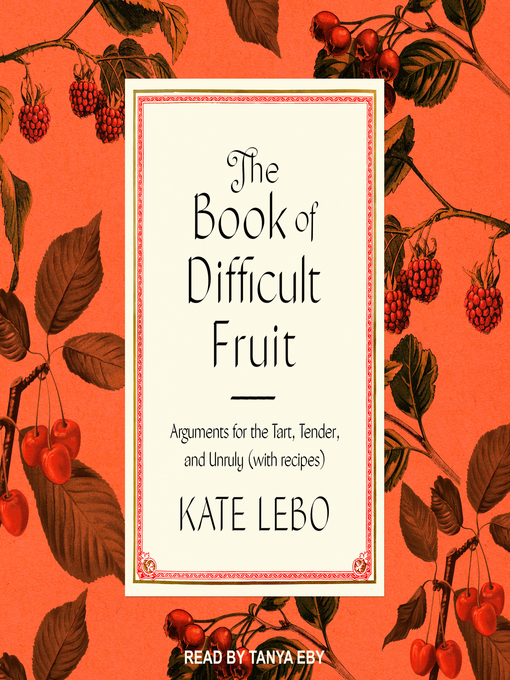- New Magazines
- Most Popular Magazines
- Arts, Culture, & Literature Magazines
- Cooking & Food Magazines
- Computer & Tech Magazines
- Crafts & Hobbies Magazines
- Home & Garden Magazines
- On the Move
- Pop Culture Magazines
- Family & Parenting Magazines
- Active Lifestyle Magazines
- Lilac City Local
- See all magazines collections
In this work of unique invention, these and other difficult fruits serve as the central ingredients of twenty-six lyrical essays that range from deeply personal to botanical, from culinary to medical, from humorous to philosophical. The entries are associative, often poetic, taking unexpected turns and giving sideways insights into life, relationships, self-care, modern medicine, and more. What if the primary way you show love is to bake, but your partner suffers from celiac disease? Why leave in the pits for Willa Cather's Plum Jam? How can we rely on bodies as fragile as the fruits that nourish them?
Lebo's unquenchable curiosity leads us to intimate, sensuous, enlightening contemplations. The Book of Difficult Fruit is the very best of food writing: graceful, surprising, and ecstatic.
-
Creators
-
Publisher
-
Release date
April 6, 2021 -
Formats
-
OverDrive Listen audiobook
- ISBN: 9781666123531
- File size: 226006 KB
- Duration: 07:50:50
-
-
Languages
- English
Formats
- OverDrive Listen audiobook
Languages
- English
Why is availability limited?
×Availability can change throughout the month based on the library's budget. You can still place a hold on the title, and your hold will be automatically filled as soon as the title is available again.
The Kindle Book format for this title is not supported on:
×Read-along ebook
×The OverDrive Read format of this ebook has professional narration that plays while you read in your browser. Learn more here.
